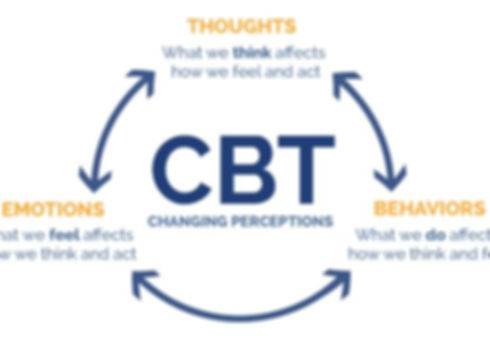Cognitive
Behavioral Therapies
Cognitive Behavior Therapy (C.B.T.) has become the treatment of choice for many emotional and behavioral problems. Pioneered by Aaron Beck and Albert Ellis in the 1960s, cognitive therapy assumes that maladaptive behaviors and disturbed moods are the result of negative or irrational thinking patterns called automatic thoughts. Instead of adaptively responding to daily challenges, individuals often react from internalized and distorted beliefs about the situation. For example, a child may conclude that he or she is "worthless" because they failed an exam or got into a fight with their “best” friend. Cognitive Behavioral therapists help clients to become more aware of their distorted thinking patterns and then to change perspectives. Different techniques are employed in C.B.T. to help clients to first uncover their distorted negative beliefs and then to change them, resulting in improvements of feelings and behaviors.
C.B.T. is an action-oriented, problem-solving form of psychosocial therapy that draws from both cognitive and behavioral therapies. Because C.B.T. offers a more objective, “cook-book” form of therapy that is easier to replicate; CBT is the most researched form of psychotherapy. It has been shown to be as effective as drugs in treatment of depression, anxiety, post-traumatic stress and obsessive- compulsive disorders. C.B.T. maybe combined with other biological (e.g., medications) or psychological treatment methods to increase their effectiveness. C.B.T. has been shown to be more effective than most medications in the treatment of sleep disorders; panic attacks, shyness, phobias, Tourette’s & Tic Disorders. Dr. Bruno has specialized training in the use of C.B.T. to treat children, adolescents and adults; along with conditions of insomnia; mood disorders; obsessive compulsive disorders; post-traumatic stress disorder; and Tourette’s & Tic Disorders.






